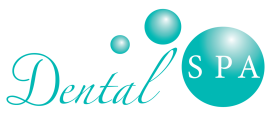Sleep apnea and Bruxism
Posted by Dr. Pittman on May 3 2021, 07:19 AM
Sleep apnea is one of the most generally occurring sleep disorders that affect both adults and children alike. The condition is characterized by creating brief pauses in the patient's breathing pattern or the complete inability to breathe while they are asleep. In severe cases, sleep apnea can even cause the patient to wake up in the middle of their sleep gasping for air due to an inability to breathe. The partial or complete blockage of the airway by the tissues of the throat often leads to this condition.
Symptoms of sleep apnea
- Feeling too sleepy during the day.
- Insomnia.
- Difficulty in concentration.
- Headaches and dry mouth during the morning.n
- Loud snoring.
- Sore throat.
- Tiredness and inactivity.
- Short pauses while breathing during sleep.
- Bruxism or teeth grinding.
What is the role of dentistry in treating Sleep Apnea?
If you are someone with sleep apnea, a dentist can help you with the various treatment options. One of the easiest ways to treat sleep apnea is by keeping the airway open during sleep using some oral appliances and making some changes to the routine lifestyle.
- Mandibular Advancement Device:A customized oral appliance, MAD appliance, brings the lower jaw forward, expanding the airway's opening and keeping the muscles of the roof of the throat from collapsing during sleep.
- Continuous Positive Airway Pressure: CPAP helps maintain a positive airway pressure to prevent the tissues from collapsing. Besides, it also provides the body with an uninterrupted supply of breathable air and oxygen supply to the lungs running.
Sleep apnea and bruxism
However, there are probabilities that many sleeping problems tend to go unnoticed if their symptoms can't be perceived by the person when they are asleep. This is the case for obstructive sleep apnea (OSA) and sleep-related bruxism. OSA occurs due to the physical blockage in the airways at the back of the throat, causing temporary pauses in the breath. Sleep-related bruxism includes repetitive jaw-muscle activity during sleep, often identified by teeth grinding or clenching.
As per the studies conducted by National Center for Biotechnology Information, approximately 2-9% of adults are affected by OSA, while sleep-related bruxism may affect around 15% of adolescents, 8% of middle-aged adults, and 3% of older adults.
In addition, it was found that a large number of people have both OSA and sleep-related bruxism together. One primary risk factor associated with sleep-related bruxism is OSA, though it's still not proved whether there is any causation or only correlation between the two. It has been identified that many people with OSA were also prone to teeth grinding at night.
Mouthguard to treat bruxism and sleep apnea
There are so many treatment options available to treat sleep bruxism and obstructive sleep apnea, including wearing a mouthguard or CPAP.
Have any doubts about the relationship between sleep apnea and teeth grinding or how to treat the conditions? Call us at (407) 330-3601 or schedule an appointment online to talk to the experts at Dental Spa, Sanford, FL.
More Blog Posts

Why Root Canal Patients Need Crowns: A Guide to Post-Treatment Care

Are Dental Extractions Painful? What You Should Know About Comfort & Anesthesia

Transforming Smiles: How Dental Implants Strengthen Jawbone Health and Enhance Facial Aesthetics

Post-Procedure Care: Ensuring a Smooth Recovery After Your Root Canal

Transforming Smiles: How Dental Implants Strengthen Jawbone Health and Enhance Facial Aesthetics
